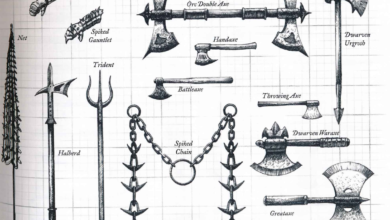Dice Wars – The Ultimate Guide to Conquering with Strategy and Luck

Dive into the world of Dice Wars with expert insights, winning strategies, and practical advice to master the art of territory conquest and strategic dice gameplay.
Introduction
When you first open Dice Wars, it seems like a simple digital board game where luck decides your fate. But once you start playing, you quickly realize it’s a blend of probability, tactical thinking, and psychological warfare. Behind every roll of the dice lies a test of patience, intuition, and foresight.
This article explores the fascinating world of Dice Wars, from its origins and mechanics to advanced strategies and decision-making techniques. Whether you’re a new player just discovering this addictive strategy game or an experienced tactician aiming to refine your play style, this comprehensive guide will help you become a true master of Dice Wars.
What Is Dice Wars
Dice Wars is a minimalist turn-based strategy game where players battle to control territories using dice. Each territory has a certain number of dice, and players take turns attacking adjacent territories. Victory or defeat depends on the total of the dice rolled.
The goal is to dominate the map by conquering all territories. The simplicity of the rules makes it easy for anyone to play, yet beneath that simplicity lies a game rich in strategic decisions. Every roll of the dice can turn the tide, making each move a careful calculation between risk and reward.
Dice Wars emphasizes planning and adaptability. While luck influences individual battles, consistent success depends on how you position your territories, when you attack, and how you manage your resources.
The Core Mechanics of Dice Wars
To truly understand the brilliance of Dice Wars, it’s essential to look at the basic rules that govern the gameplay. Though luck plays a role, every great player knows that strategy outweighs chance in the long run.
Territory and Dice Distribution
At the start of each game, the map is divided into territories, each controlled by a player. The number of dice in each territory varies, usually distributed randomly. You can only attack from a territory that has more than one die.
The objective is to expand your domain by attacking adjacent enemy territories. If your roll beats the opponent’s, you claim their land. However, failed attacks weaken your position because you lose dice in the attacking territory, leaving it exposed to counterattacks.
The allocation of dice across your territories becomes a balancing act. Concentrate them too heavily in one area, and other regions become vulnerable. Spread them too thin, and your offensive power diminishes. Strategic placement is the foundation of every successful game.
Combat and Attack Resolution
Every battle in Dice Wars comes down to a roll of the dice. When you attack, all dice in your territory are rolled, and your opponent does the same. The side with the higher total wins. If you win, your dice move into the captured territory, leaving one die behind. If you lose, your attacking stack is reduced to one.
The thrill of this mechanic lies in its unpredictability. Even a well-planned attack can fail due to an unlucky roll. That’s why the best players don’t just rely on luck—they attack with overwhelming advantage, ensuring probability works in their favor over time.
Strategy Over Luck
One of the most captivating aspects of Dice Wars is how it transforms luck into a strategic tool. Every player faces the same randomness, but the difference between victory and defeat lies in how you react to it.
Experienced players know that patience is as valuable as aggression. You might have multiple opportunities to attack, but striking at the wrong time can lead to disaster. Waiting for the perfect moment—when your dice advantage is undeniable—can often be the key to winning.
Another core principle is risk management. In Dice Wars, not all territories are equal. Some are chokepoints that protect your entire network, while others are expendable outposts. Understanding the value of each position helps you decide where to reinforce and when to gamble on a roll.
The Art of Expansion
In Dice Wars, expansion isn’t just about capturing as much land as possible—it’s about doing so sustainably. Each new territory increases your potential reinforcements at the end of your turn. However, expanding recklessly can leave your empire stretched too thin.
Smart players grow in controlled bursts. They identify weak enemy territories, chain attacks efficiently, and stop when the odds start turning unfavorable. Knowing when to stop is as important as knowing when to attack.
Defensive positioning also plays a role. After expanding, you must anticipate retaliation. Protecting borders with strong dice stacks discourages opponents from attacking, allowing you to maintain your lead.
Reinforcements and Momentum
At the end of every turn, you receive bonus dice based on the size of your largest connected territory group. This reinforcement system rewards players who focus on cohesion rather than chaos.
Instead of spreading your control across the map, it’s often wiser to build a strong, unified zone. The more contiguous your empire, the larger your bonus reinforcements become. This design encourages methodical play and rewards long-term thinking over impulsive decisions.
Momentum plays a huge role in Dice Wars. Once a player gains enough connected land to consistently receive large reinforcements, the game often tilts in their favor. However, maintaining momentum requires constant vigilance—overextension can cause your downfall just as quickly as luck can.
Advanced Tactics for Mastering Dice Wars
Once you understand the fundamentals, it’s time to elevate your gameplay with advanced tactics. These techniques separate casual players from true strategists.
Reading Opponent Behavior
Dice Wars may be a game of dice, but it’s also a game of psychology. Pay attention to your opponents’ tendencies. Some players are overly aggressive, attacking every turn regardless of risk. Others are overly cautious, missing opportunities.
By recognizing these patterns, you can predict their actions and set traps. For example, if an opponent frequently attacks weak borders, leave a vulnerable-looking territory as bait. When they take it, counterattack immediately to reclaim it and weaken their position.
Territory Prioritization
Not all regions on the map hold equal value. Key territories—those at junctions or controlling multiple pathways—are more important than isolated corners. Prioritize control over these strategic hubs, as they determine mobility and defense options.
Sometimes, giving up less valuable land can help strengthen your overall position. Sacrifice one or two territories to solidify a powerful core that’s harder to penetrate.
Managing Probability
Every dice roll in Dice Wars follows simple probability, but learning how to estimate your chances helps you make better decisions.
For instance, attacking with six dice against three offers a high probability of success, while attacking with four dice against five is a risky bet. Experienced players internalize these odds over time, using them to decide whether to engage or wait.
Understanding probability also means knowing when to accept losses. Sometimes, sacrificing a few dice in a failed attack can open the path for future success. Smart players think several turns ahead instead of chasing every win immediately.
The Psychology of Dice Wars
Beyond mechanics and probability, Dice Wars thrives on psychology. Every decision you make influences how opponents perceive you.
Being unpredictable is an advantage. If you always attack aggressively, opponents learn to defend accordingly. But if you occasionally switch to a defensive or deceptive style, you keep them guessing. This psychological warfare adds another layer of depth to the game.
Confidence also matters. Players who hesitate give opponents time to regroup. Acting decisively—even when unsure—can pressure rivals into making mistakes.
Common Mistakes New Players Make
Even skilled players fall into traps when learning Dice Wars. Recognizing these mistakes early helps you avoid them.
1. Overextending Too Early
New players often try to capture as many territories as possible in one turn. This leaves their empire vulnerable and dice spread too thin. A calculated, patient expansion is far more effective.
2. Ignoring Reinforcement Bonuses
Many players forget that the game rewards connected regions. Isolated territories may look impressive but provide fewer reinforcements. Focus on linking your lands for long-term advantage.
3. Attacking Without Purpose
Every attack should serve a strategic purpose—weakening an opponent, securing a chokepoint, or unifying your area. Random attacks waste resources and invite retaliation.
Winning Mindset
The mindset you bring to Dice Wars can dramatically affect your success. The best players blend discipline with creativity.
Patience is essential. Many games are lost because players act out of frustration or excitement after a lucky roll. Dice Wars rewards those who plan several turns ahead and think like generals, not gamblers.
Adaptability is equally important. Every game unfolds differently depending on map layout and dice distribution. What worked last time might not work now. Stay flexible, adjust your tactics, and read the evolving battlefield.
The Joy of Minimalism
One of the reasons Dice Wars remains beloved among strategy fans is its minimalist design. There are no complex graphics, lengthy rules, or endless setup times—just pure, distilled strategy.
This simplicity allows players to focus on what truly matters: decision-making. Every move feels meaningful, every roll suspenseful. The absence of distractions amplifies the tension and satisfaction of each victory.
The minimalist aesthetic also makes Dice Wars timeless. It doesn’t rely on trends or flashy visuals; its appeal lies in universal gameplay principles that will remain engaging for decades.
The Role of Luck and Skill
A frequent debate among players is whether Dice Wars is a game of luck or skill. The truth lies somewhere in between.
Luck determines short-term outcomes. A bad roll can ruin a perfect plan, while a lucky one can save a desperate situation. But skill determines long-term success. Over many games, players who understand probability, manage risk, and make smarter strategic decisions consistently outperform others.
In other words, Dice Wars rewards skill through probability management and strategic foresight—but never completely eliminates luck, keeping every match exciting and unpredictable.
Playing Against AI vs. Humans
Playing against computer opponents offers a great way to practice fundamentals, but human opponents bring unpredictability. AI follows patterns, while humans can bluff, adapt, and exploit psychology.
When facing AI, focus on refining your decision-making, learning probabilities, and testing new strategies. When facing humans, focus on unpredictability, deception, and reading behavioral cues.
Both experiences complement each other—AI teaches precision, while humans teach adaptability.
Table of Key Strategy Concepts
| Concept | Description | Strategic Value |
|---|---|---|
| Territory Cohesion | Keeping your regions connected | Increases reinforcement bonuses |
| Dice Concentration | Stacking dice for powerful attacks | Maximizes success probability |
| Controlled Aggression | Attacking only when odds favor you | Maintains stability |
| Bluffing | Making opponents misjudge your strength | Psychological advantage |
| Momentum | Sustaining growth and reinforcements | Secures long-term dominance |
Quotes from Strategy Masters
“In Dice Wars, luck is just another tool—those who master timing never fear the dice.”
“Every failed attack teaches patience; every victory teaches restraint.”
“It’s not the roll that defines the player, but how they plan before it.”
FAQs About Dice Wars
What makes Dice Wars unique among strategy games?
Its minimalist design and quick gameplay make it easy to learn but hard to master. The combination of luck and tactical depth creates a perfect balance of simplicity and challenge.
Can luck alone win the game?
Luck can help in single battles, but consistent victory requires strategic thinking. Skillful players win more often over time by managing probability and positioning.
Is there a best map layout or size to play on?
Not necessarily. Different maps encourage different strategies. Smaller maps require faster aggression, while larger maps reward long-term planning.
How can I improve my Dice Wars strategy?
Practice patience, observe opponents’ behavior, prioritize reinforcement zones, and learn to anticipate counterattacks. Study how dice probabilities affect your odds before each move.
Can Dice Wars be played competitively?
Yes. Many fans organize friendly tournaments and online matches. While casual at heart, the game’s strategic depth makes it well-suited for competition.
Conclusion
Dice Wars may look simple on the surface, but beneath its minimalist design lies a deep, endlessly replayable strategy experience. It rewards patience, foresight, and adaptability. Every dice roll carries the tension of chance, but every decision reflects your skill and understanding.
Whether you play for relaxation or competition, Dice Wars remains a shining example of how elegance and simplicity can create one of the most engaging strategy games ever made. In the end, the dice may roll randomly—but victory always belongs to those who think before they roll.





